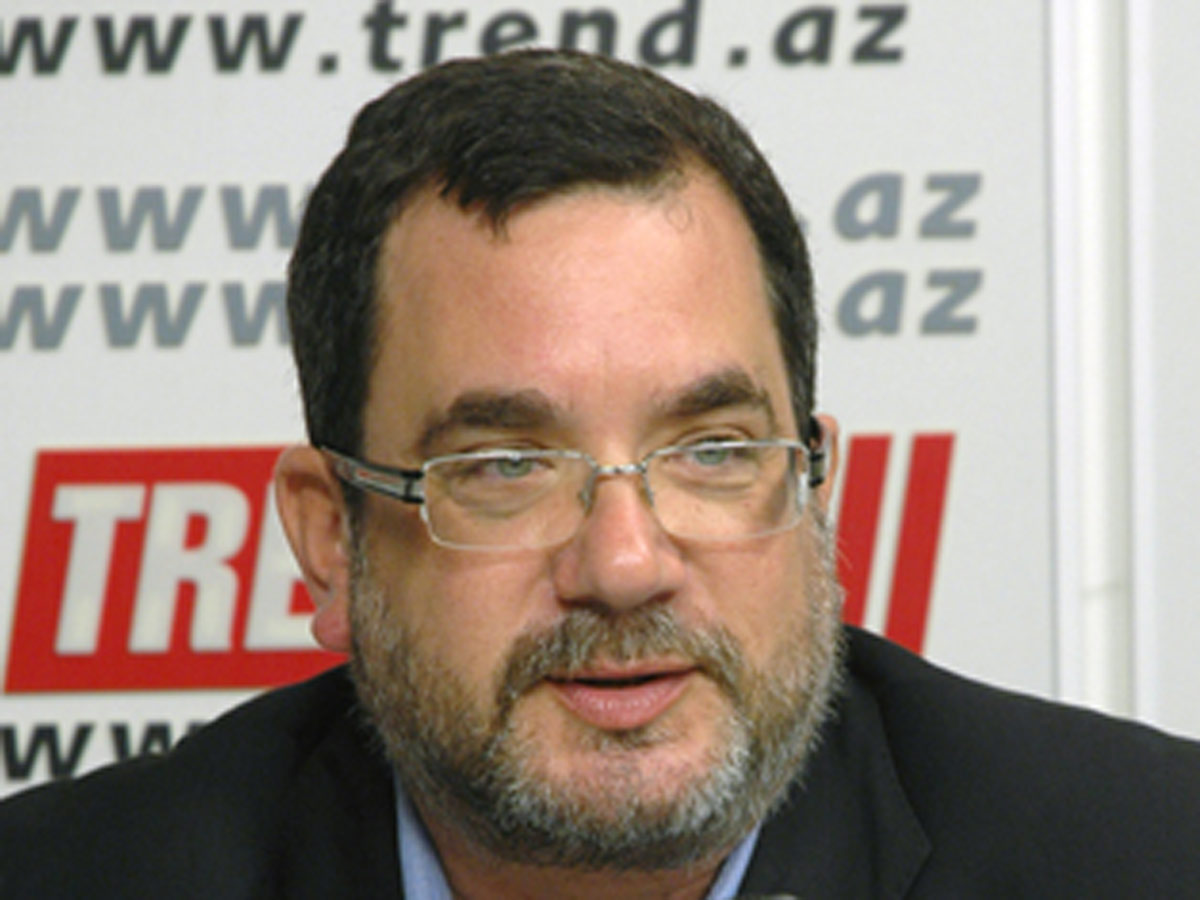Baku, Azerbaijan, Jan. 4
By Anakhanum Khidayatova - Trend:
Saudi Arabia and Iran have been engaged in a Cold War via proxy, in its most recent manifestation, since the Arab Spring, in Yemen, Syria, Lebanon, Iraq, and in other countries around the world through humanitarian aid and dawa (outreach), Theodore Karasik, the Middle East analyst and senior advisor to Risk Insurance Management in Dubai, told Trend Jan. 4.
He said that the mentioned Cold War entered a dangerous, highly confrontational phase in the past few days.
"The Kingdom, in mid December, prepared the steps for today, with Deputy Crown Prince Mohammed bin Salman announcing a Sunni Muslim Alliance," Karasik said. "With the Saudi execution of the "terrorist extremist" Sheikh Nimr al-Nimr, who was the spiritual leader of Saudi Shiites in the Kingdom's Eastern Province, the sectarian divide grew immediate into a deep chasm," he said.
The expert also said that Saudi Arabia's Sunni Muslim Alliance is now fully activated with the al-Nimr execution.
"The Kingdom is throwing down the gauntlet on Iran's behavior and Riyadh seeks to expose the Islamic Republic's perfidy in the Arab lands. More importantly, Saudi Arabia, as Custodian of the Two Holy Mosques, is now seeing who will rush to Riyadh's side under the mantra of Sunni Islam," Karasik said.
"Immediately, the GCC states (Gulf Cooperation Council) - except Oman - came to the Kingdom's side, as did Sudan and several other countries. The coming days, and perhaps weeks, will see whether all 30 plus members of the Sunni Military Alliance will declare a so-called bayat (Islamic word for allegiance) to the Saudi Kingdom as the face off continues with Iran," he said.
The expert also said that Saudi Arabia is angry with Iran; so angry that Riyadh seeks to not only tear down the Islamic Republic's ability to re-emerge on the global economic arena with the lifting of sanctions, but also wants to guarantee that the February 2016 parliamentary elections swing 100 percent to the principalists and the IRGC.
"From Riyadh's thinking, Iran's true colors need to be shown to the world. This aggressive Saudi policy is likely to affect the region for some time to come," Karasik said.
"Thus, in the Middle East, the Saudi action, in one stunning move, reset the geopolitical chessboard on a host of negotiations, especially the future of Syria, as well as set the possibility for higher oil prices if the Cold War becomes a Hot War. A Hot War, whether asymmetric or through enhanced proxy actions up to and including bombing campaigns or targeted assassinations, will boost the price of oil in order to help Saudi Arabia's partners earn necessary income into their state coffers," he said.
However, Karasik says there is a "serious loss".
"Gone is any hope for coordination on fighting the Islamic State not only in the Levant but in other arenas. Iran is a necessary part of that fight but for Gulf Arabs, Tehran is seen as a bigger threat. That fact may be a strategic and tactical error that will give Daesh (ISIS, ISIL) a free pass until the group is dealt with in an accurate kinetic and counter-narrative approach," he said.
"Russia and Iran were on the right path while Saudi Arabia and others were supporting extremists and terrorists who bastardized their own Wahhabist creed. Thus, Saudi's aggressive stance against Iran masks the radical disturbances within the Sunni ummah itself," Karasik said.
Expert also said that its clear that Russia may benefit the most from the sectarian eruption.
The Kremlin is already offering to negotiate between the two sides, which is a good approach by Moscow, Karasik believes.
"But there is a bigger question here: the future of the Saudi Kingdom. Unlike Iran, whose cohesion is, for the most part guaranteed, the Al-Saud's Arabia is under great political and economic stress up to including internal dissent at various levels of Saudi society in various corners of the country (the south, the Hijaz, the Nejd, and the Eastern Province) up to intra-princely disputes that may now break into the open," said Karasik. "Russia sees that Saudi Arabia is in trouble, and President Putin is known to have threaten the Kingdom during various high-level meetings with Saudi rulers."
"Overall, patience will be a key here for Moscow, and given the Kremlin propensity to side more with Shiites because of their patient virtues, a Saudi over-extension of its Sunni alliance may backfire in a black hole that forces the Al-Saud from power and sees the Kingdom evaporate," he said.
Saudi Arabia's execution of a prominent Shiite cleric led to violent protests at the Saudi embassy in Tehran, which led to a breakdown of relations between the two countries.
Saudi Arabia previously cut air traffic with Iran, and said that it intends to cut all commercial ties as well.
...







